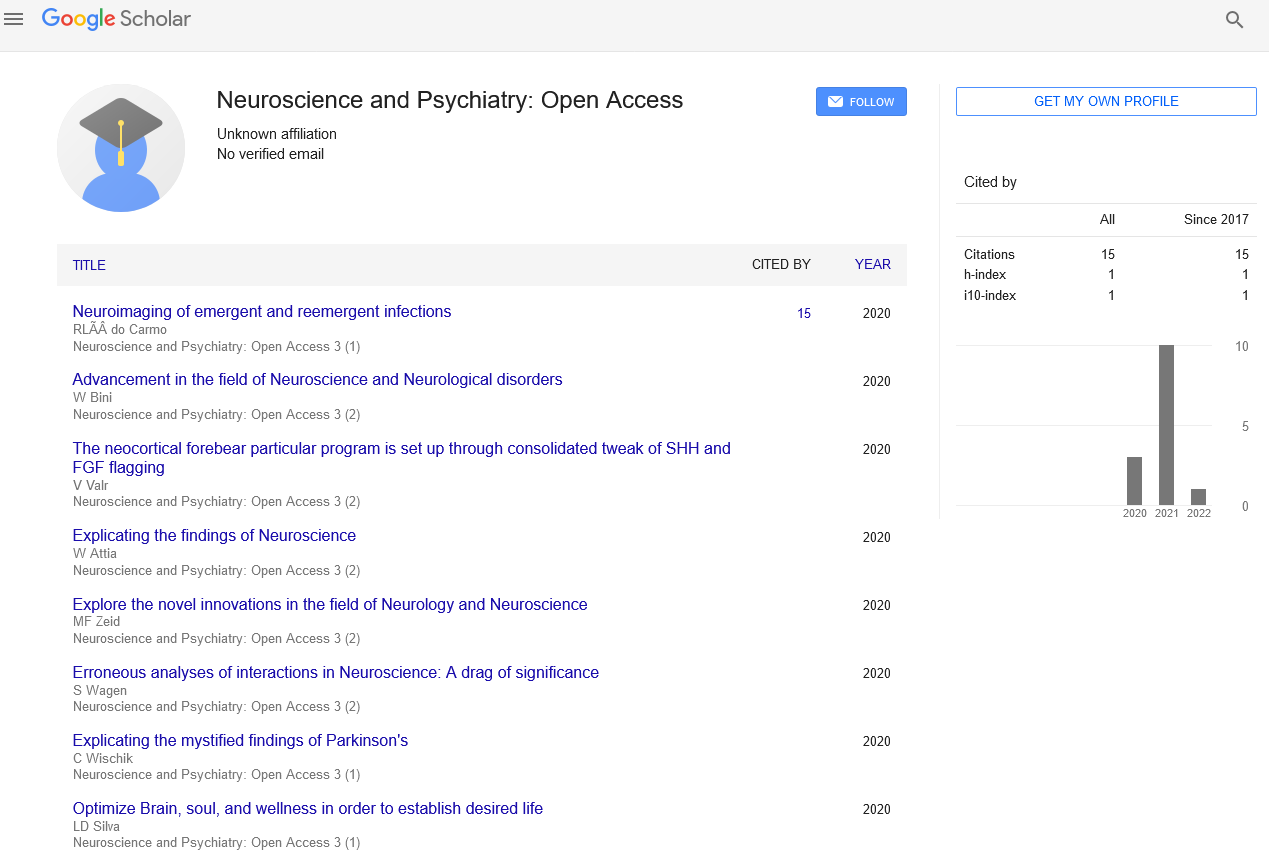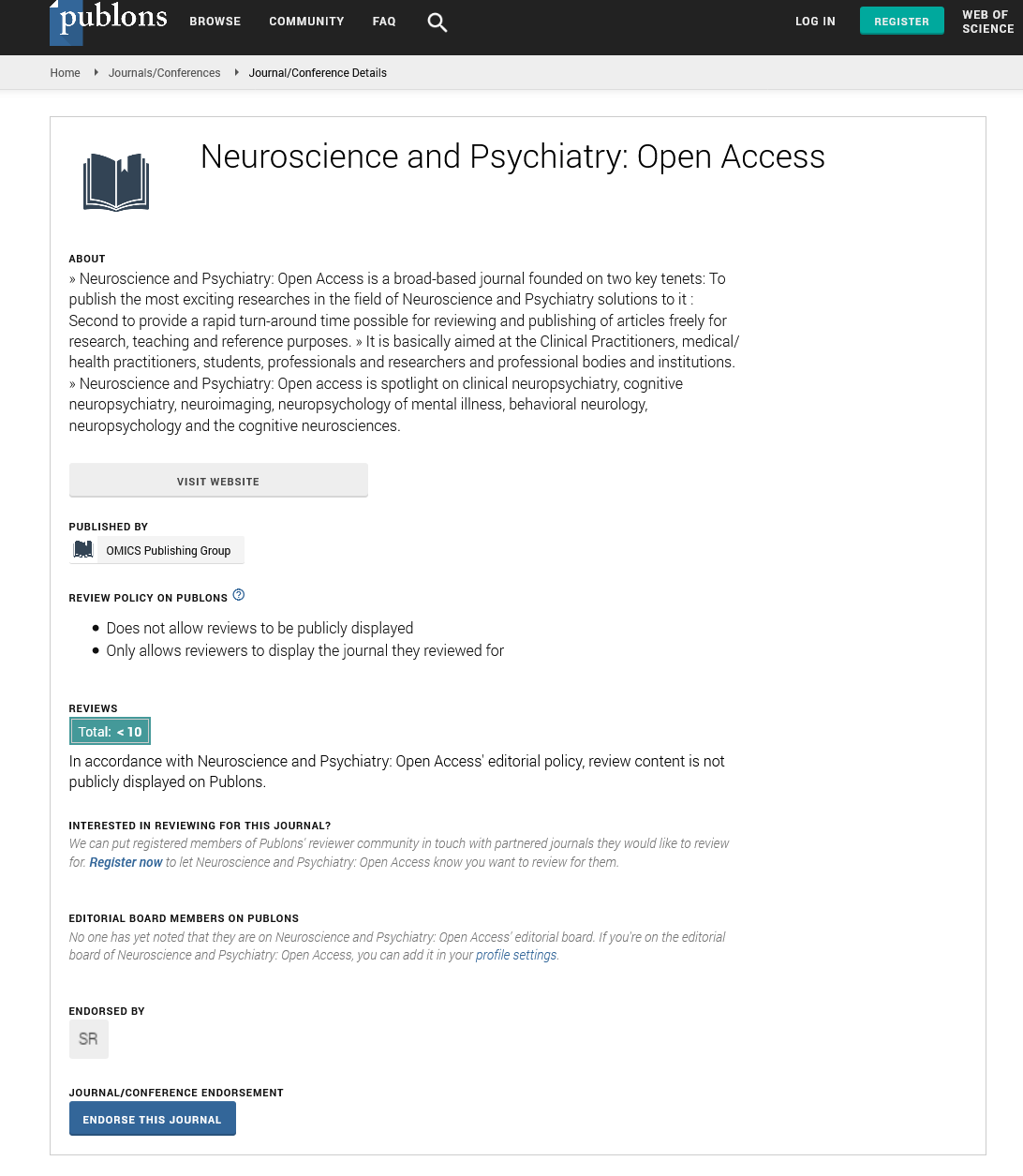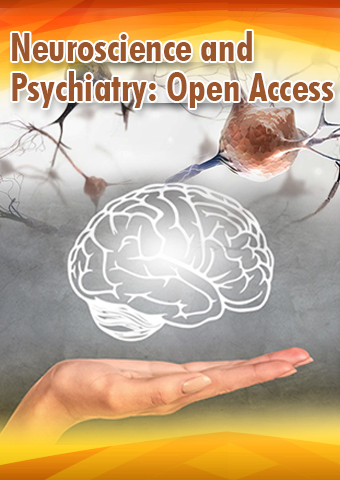Perspective - Neuroscience and Psychiatry: Open Access (2024) Volume 7, Issue 3
Unraveling the Genetic Tapestry of Psychiatric Disorders: Insights from Psychiatric Genetics
- Corresponding Author:
- Philippe Vincent
Department of Psychiatry, McMaster University, Hamilton, Canada
E-mail: philippe.vin2@umontreal.ca
Received: 23-04-2024, Manuscript No. NPOA-24-133883; Editor assigned: 26-04-2024, PreQC No. NPOA-24-133883 (PQ); Reviewed: 10-05-2024, QC No. NPOA-24-133883; Revised: 20-05-2024, Manuscript No. NPOA-24-133883 (R); Published: 27-05-2024, DOI: 10.47532/npoa.2024.7(3).220-221
Introduction
In the intricate realm of mental health, psychiatric genetics emerges as a beacon of understanding, offering insights into the genetic underpinnings of psychiatric disorders. This article delves into the complex interplay between genetics, neuroscience, and psychiatry, exploring the evolution of psychiatric genetics, key genetic findings, implications for diagnosis and treatment, ethical considerations, and future directions within this burgeoning field.
Description
The evolution of psychiatric genetics: From twin studies to genome wide analyses
The roots of psychiatric genetics can be traced back to early familial and twin studies that underscored the heritability of psychiatric disorders. Researchers observed higher concordance rates for disorders such as schizophrenia, bipolar disorder, and major depressive disorder among monozygotic twins compared to dizygotic twins, highlighting the role of genetic factors in disease susceptibility.
Advancements in molecular genetics, including linkage studies, candidate gene approaches, and, more recently, Genome-Wide Association Studies (GWAS), revolutionized our understanding of the genetic architecture of psychiatric disorders. GWAS, in particular, identified common genetic variants associated with a spectrum of psychiatric conditions, paving the way for polygenic risk scoring, gene mapping, and pathway analyses.
Key genetic findings in psychiatric disorders
Genomic studies have yielded a wealth of insights into the genetic complexity of psychiatric disorders, revealing both shared and disorder-specific genetic risk factors. For instance, schizophrenia GWAS identified variants in genes related to neurotransmitter signaling (e.g., dopamine, glutamate), synaptic plasticity (e.g., DISC1, NRXN1), and immune function (e.g., C4A) implicated in disease pathogenesis.
Similarly, GWAS in mood disorders highlighted genetic loci linked to serotonin and neurotrophic signaling pathways, circadian rhythm regulation, and synaptic connectivity. These genetic discoveries not only shed light on disease mechanisms but also inform potential therapeutic targets and personalized treatment approaches based on an individual’s genetic profile.
Implications for diagnosis, prognosis, and treatment
The integration of psychiatric genetics into clinical practice holds promise for precision psychiatry, where genetic biomarkers aid in early diagnosis, prognostication, treatment selection, and response monitoring. Genetic testing, including pharmacogenomic assays, assists clinicians in tailoring psychotropic medications to an individual’s genetic makeup, optimizing therapeutic efficacy and minimizing adverse effects.
Furthermore, polygenic risk scoring and polygenic risk profiling offer predictive models for assessing an individual’s genetic predisposition to psychiatric disorders. These risk scores inform preventive interventions, lifestyle modifications, and early interventions aimed at mitigating disease onset or progression, particularly in high-risk populations.
Ethical considerations and genetic counseling
The intersection of genetics and psychiatry raises ethical considerations regarding genetic testing, confidentiality, informed consent, and stigma. Genetic counseling plays a pivotal role in navigating these ethical dilemmas, providing education, support, and guidance to individuals and families grappling with genetic risk factors for psychiatric disorders.
Ethical frameworks emphasize principles of autonomy, beneficence, non-maleficence, and justice in genetic testing and disclosure practices. Culturally sensitive approaches, privacy safeguards, and ongoing research ethics oversight safeguard against potential harms and ensure equitable access to genetic information and mental healthcare services.
Emerging frontiers:Epigenetics, neurodevelopment, and translational research
Beyond genetic variations, epigenetic mechanisms, including DNA methylation, histone modifications, and non-coding RNA regulation, modulate gene expression and contribute to the interplay between genetics and environment in shaping psychiatric phenotypes. Epigenetic studies unveil dynamic molecular processes that influence neurodevelopment, stress response, and resilience, offering novel insights into gene-environment interactions and intergenerational transmission of psychiatric traits.
Translational research bridges the gap between genetic discoveries and clinical applications, fostering collaborations between basic scientists, clinicians, and industry partners. Innovative approaches, such as induced Pluripotent Stem Cell (iPSC) models, organoid cultures, and CRISPR-Cas9 gene editing, accelerate drug discovery, precision therapeutics, and personalized medicine initiatives in psychiatry.
Future directions and collaborative endeavors
Looking ahead, collaborative efforts across disciplines, including genetics, neuroscience, psychiatry, and computational biology, will drive progress in understanding the genetic basis of psychiatric disorders. Integrative approaches that combine genetic data with neuroimaging, biomarkers, cognitive assessments, and digital phenotyping hold promise for comprehensive disease characterization and treatment optimization.
Furthermore, population based studies, longitudinal cohorts, and international consortia facilitate large-scale genetic analyses, replication studies, and meta-analyses to validate genetic findings and identify novel genetic variants. Open science initiatives, data sharing platforms, and ethical data governance frameworks promote transparency, reproducibility, and equitable access to genetic research resources.
Conclusion
In conclusion, psychiatric genetics illuminates a genomic odyssey in psychiatry, unveiling the intricate interplay between genes, brain function, and mental health. By unraveling the genetic tapestry of psychiatric disorders, researchers, clinicians, and stakeholders advance precision medicine initiatives, foster therapeutic innovations, and empower individuals with personalized insights into their genetic risk profiles.
As we navigate the complexities of genetic determinants in mental illness, interdisciplinary collaborations, ethical frameworks, and patient- centered approaches guide our quest for transformative discoveries and equitable mental healthcare solutions. The integration of genomic insights into clinical practice heralds a paradigm shift towards precision psychiatry, where genetics serves as a compass for navigating the vast seas of mental health and fostering resilience in the face of psychiatric challenges.


